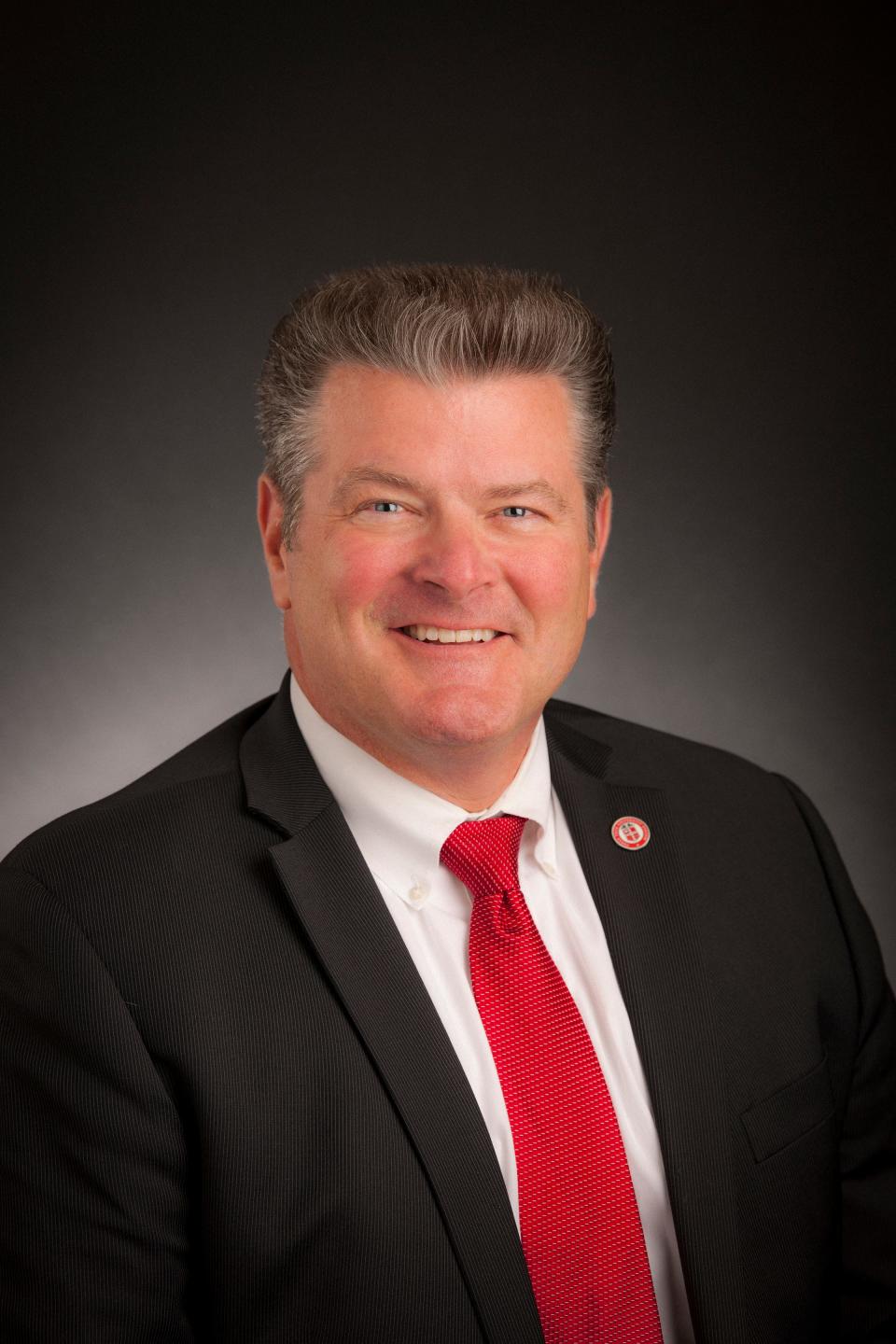Mitchell: Texas Tech System thinking in 'worldwide terms'
“Everything that is done on these West Texas Plains ought to be on a big scale. It is a country that lends itself to bigness. It is a country that does not harmonize with things little or narrow or mean. Let us make the work of our college fit with the scope of our country. Let our thoughts be big thoughts and broad thoughts. Let our thinking be in worldwide terms.”

Texas Technological College’s first president, Paul Whitfield Horn, delivered those lines in 1925 to the first class of Red Raiders, a group that included just over 900 freshmen and sophomores who’d come to study agriculture, home economics, engineering and liberal arts in Lubbock, Texas. Two years later, 26 of those students became the first graduating class of what is now Texas Tech University.
As we celebrate the centennial of our flagship institution, it's safe to say we took Horn’s words of bigness to heart, and we’ve made him proud. What started as a single university in Lubbock has grown to a higher education enterprise – the Texas Tech University System – that now includes five universities with a footprint spanning the state and stretching across the globe.
One hundred years is a lot of history, especially for an institution like TTU. It’s hundreds of milestones among an infinite number of moments, hundreds of accomplishments among hundreds of thousands of people. It’s an immeasurable legacy built one story and one person at a time, forever sewn into the fabric of West Texas.
For every story we’ve had the chance to tell, there are countless others waiting for their turn. There are many others who are just as content to remain in the shadows, bearing our banners with quiet pride as they serve in just about every way imaginable, teaching our children, leading our law firms and mentoring the next generation of engineers, scientists and innovators.
Among those unsung heroes are the people and communities who have steadfastly supported TTU – and Lubbock – from day one. That support is especially meaningful when you consider the number of towns who threw their hat in the ring in 1923, all anticipating what an institution like this could mean for their community.
And yet, when the news came out of Fort Worth that Lubbock had been chosen unanimously – and on the first ballot, no less – from among the 37 hopeful, vying towns, the response was immediate: congratulations poured into Lubbock via telegram from countless communities dotting the western half of Texas.
“The people of Abilene extend their congratulations to Lubbock and predict for Texas Tech a glorious future,” the first message declared, along with a promise of 150 businessmen who would join the festivities in Lubbock later that month. The official Jubilee Celebration on Aug. 28, swelled to an estimated 40,000 people from near and vastly outnumbering the local population of around 11,000.
With support like this, we’ve continued to think, to plan and to do on a big scale as the years have passed, calling on those crucial community partners who have responded when it matters most. In 2021, we planted our latest flag for TTU in Amarillo, opening the state’s first school of veterinary medicine in 100 years.
Despite fierce opposition from some – opposition spanning back to the original endeavor in the 1970s then again in 2015 – there was a groundswell of support not just from the people in Amarillo but from towns and communities across the state that saw a shared need, rallied around TTU’s answer and did everything in their power to help that solution reality. Among those supporters were 16 Chambers of
Commerce and 6 regional councils of government, many representing the rural communities of West Texas that are often overlooked and underserved despite providing the food, fiber and fuel that drives our state livelihood.
In turn, we’ve invested back into these communities, helping to place Red Raiders in previously unfilled roles in classrooms, clinics and offices. We’ve found ways to meet our communities’ needs through outreach, engagement and services. We’ve gone beyond our established role of educating generation after generation of young minds to being a community asset that ultimately results today in an impressive statewide economic impact to the tune of $16.4 billion.
Last December, 9,140 students earned a TTU diploma, joining more than 300,000 Red Raiders who have graduated from the university and have gone on to make their mark in every state and in 119 countries around the world.
We’ve come a long way since those first 26 students walked the stage in 1927, and we continue to think in worldwide terms while finding ways to serve those who need it the most.
As we reflect with gratefulness on all we’ve accomplished in the last century, we look forward to all that we will continue to accomplish, together.
(Tedd L. Mitchell, M.D., is the chancellor of the Texas Tech University System.)
This article originally appeared on Lubbock Avalanche-Journal: Mitchell: Texas Tech System thinking in 'worldwide terms'

